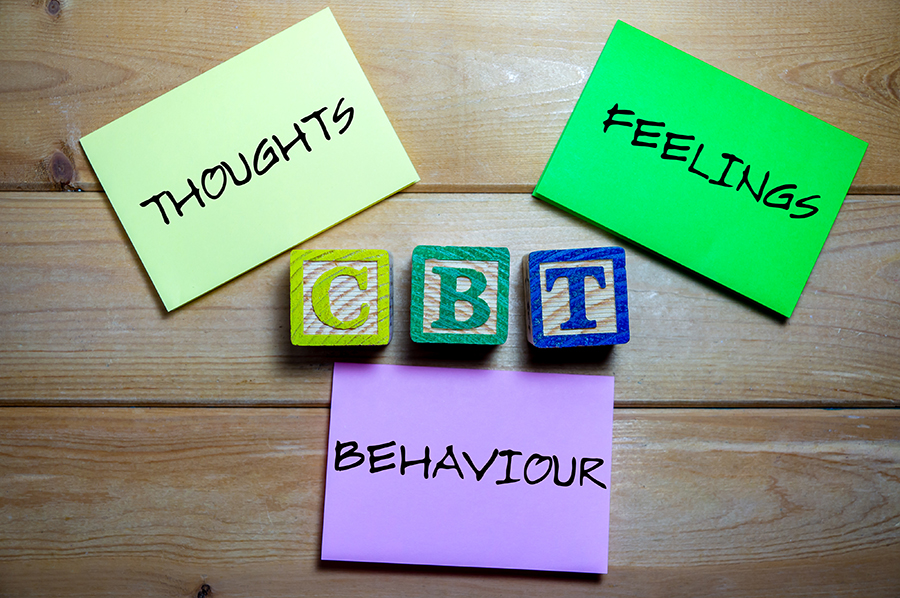How To Become A Behavior Therapist: The Best Free Guide
Do you want to help people change their lives for the better? Are you interested in how the human mind works? If so, then a career in behavior therapy may be right for you! This field is growing rapidly, and there are many opportunities for those who are qualified. In this guide, we will discuss everything you need to know about how to become a behavior therapist. We will also talk about the different types of behavioral therapy, and what kind of degree you need to practice this profession. So if you’re ready to learn more, keep reading!
History Of Behavioral Therapy
Behavioral psychology began back in the early 1800s with the work of Ivan Pavlov. He is best known for his famous experiment involving dogs and salivation. In his experiment, he found that he could condition a dog to salivate at the sound of a bell by ringing the bell every time he gave the dog food. This finding laid the groundwork for what would become known as classical conditioning.
The Father Of Behaviorism
In the early 1900s, another important figure in the history of behavioral therapy emerged: John B. Watson. Watson was an American psychologist who is considered to be the father of behaviorism. He believed that all behavior could be explained by observable and measurable responses to environmental stimuli. He also believed that emotions were nothing more than physiological responses to environmental stimuli.
Wolpe’s Systematic Desensitization Theory
Watson’s ideas were influential in the development of behavior therapy, but it wasn’t until the 1950s that behavior therapy began to take shape as a distinct field. In 1953, Joseph Wolpe published a paper outlining his theory of systematic desensitization. Wolpe’s theory was based on the work of Ivan Pavlov, who showed that dogs could be conditioned to salivate in response to a bell.
Wolpe believed that humans could be conditioned to respond in similar ways to certain stimuli. He developed a method of treatment known as systematic desensitization, which was based on the principle of classical conditioning. Systematic desensitization is a process whereby a person is gradually exposed to the thing that they’re afraid of, while at the same time being taught how to relax.
That’s Quite An Observation Albert!
Behavior therapy began to gain popularity in the 1960s and 1970s, as more and more research began to emerge supporting its efficacy. In 1973, Albert Bandura published a seminal paper on the subject, in which he proposed that humans could learn new behaviors through observation and imitation.
Behavior therapy is now an evidence-based practice, and its techniques are used to treat a wide variety of mental and emotional disorders. If you’re interested in becoming a behavior therapist, there are a few things you’ll need to know about first.
What Is A Behavior Therapist?
A behavior therapist today provides clinical psychology as mental health professionals. The main difference between a behavior therapist and other types of therapists is that a behavior therapist focuses on changing specific behaviors, rather than exploring the root cause of those behaviors.
For example, a person with an anxiety disorder may see a traditional therapist to talk about their childhood experiences and how they might be affecting their anxiety. A behavior therapist, on the other hand, would focus on helping that same person identify and change the behaviors that are causing or exacerbating their anxiety.
Types of Behavior Therapy
There are many different types of behavior therapy, but the most common is cognitive-behavioral therapy (CBT). CBT is a type of therapy that focuses on both changing negative thoughts and behaviors. Other common types of behavior therapy include:
- Exposure Therapy: Behavioral therapists work with patients to help them confront their fears in a safe and controlled environment. This can help people with phobias, anxiety disorders, and OCD. Some behavior therapies require specialized training, such as exposure and response prevention (ERP) for OCD.
- Dialectical Behavior Therapy (DBT): DBT is a type of CBT that focuses on helping people with borderline personality disorder, depression, and other mental health conditions. DBT therapists help patients manage their emotions and encourage positive behaviors.
- Acceptance And Commitment Therapy (ACT): (ACT) helps people with anxiety, depression, chronic pain, and other conditions by teaching them to accept their thoughts and feelings without judgment. This can help people live more meaningful lives.
- Behavioral Activation: One of the more common therapies used by behavioral psychologists is behavioral activation. This CBT is based on the idea that our emotions are influenced by our behaviors. So, if we change our behaviors, we can change how we feel.
Coping Strategies Used In Behavioral Interventions
There are some research methods for addiction counseling that help with mood disorders and psychological disorders. Mental health counselors have to use applied behavior analysis to assess patients. They also have to use treatments that are based on the principles of behaviorism. ABA is a process of observing how people interact with their environment and how those interactions affect their emotions and behaviors.
Behavioral psychologists use different techniques to help people change their behavior. One of the most common methods is called operant conditioning. This type of conditioning uses rewards and punishments to teach people new behaviors.
Another common method is called classical conditioning. This type of conditioning involves linking the desired behavior with a positive or negative stimulus. For example, if you want someone to stop smoking, you might pair the act of smoking with something unpleasant, like getting a shock.
Becoming a Behavior Therapist
If you’re interested in becoming a behavior therapist, there are a few things you’ll need to do.
First, you’ll need to earn a bachelor’s degree in psychology or a related field. Then, you’ll need to complete a master’s or doctoral degree in clinical psychology or counseling psychology programs. Once you’ve earned your degree, you’ll need to obtain licensure in your state.
After you’ve obtained licensure, you can begin working as a behavior therapist. If you want to specialize in a particular area of behavior therapy, you can complete a postdoctoral fellowship or residency program.
Becoming a behavior therapist can be a rewarding career choice. If you have a passion for helping others, this may be the perfect career for you. With the right education and training, you can make a difference in the lives of those you work with.
Looking for more resources on professional psychology?
If you’re interested in becoming a behavior therapist, contact your local mental health association or state psychological association to find out more about how to get started. You can also check out resources like the National Association for Behavioral and Cognitive Therapies (NABCT) website for more information.
Another great resource for behavioral science students is the American Psychological Association’s (APA) website. The APA offers a wealth of information on how to become a psychologist, including information on education and training requirements, licensure, and specialty areas.
If you have any questions about how to become a behavior therapist or what it takes to be successful in this field, please don’t hesitate to reach out and comment below!
Certified Cognitive Behavioral Therapist: The Beginning
The first step to becoming a behavior therapist is to complete a postdoctoral fellowship or residency program. These programs are typically two years long and provide you with the opportunity to work with clients in a clinical setting. During your training, you’ll learn how to diagnose and treat mental health disorders using evidence-based techniques. You’ll also gain experience working with different populations, including children, adolescents, and adults.
Once you’ve completed your fellowship or residency program, you’ll need to obtain a license to practice in your state. Requirements vary by state, but most require you to pass an exam and complete a certain number of continuing education credits. Once you’re licensed, you can begin working as a behavior therapist in private practice, hospital, or another clinical setting.
Benefits For Cognitive-Behavioral Therapists
There are many benefits to having an educational background in applied psychology. PhD counseling psychology programs teach you how to work in different medical settings. Most PhD programs cover issues such as obsessive-compulsive disorder, autism spectrum disorders, or a common behavioral disorder. Master’s degree programs are great but continuing education hours for an advanced degree helps your job outlook even more.
You can open your own private practice once you obtain your psychology license. This allows you to treat patients how you see fit and also set your own hours. If you want to help people but do not want to work in a clinical setting, there are other options available as well. You can become a consultant for businesses or even start your own non-profit organization. The opportunities are endless for those with an educational background in psychology.
Perform Research For Opportunities
A behavioral therapist’s salary per year on average according to the Bureau of Labor Statistics website, is $63,530. The salary range for behavioral therapists is from $43,290 to $86,900.
The top-paying industries for behavioral therapists are:
– Outpatient Care Centers
– Individual and Family Services
– Residential Mental Health and Substance Abuse Facilities
– Employment Services
– State Government
How long does it take to become a licensed behavioral therapist?
To become a behavioral therapist, mental health professionals spend at least ten years in most doctoral programs. Other graduate programs for behavioral therapists depend on specialized areas of focus, such as working with school psychology. The most common type of degree for a behavioral therapist is a Doctor of Psychology (PsyD).
Cognitive-behavioral therapists treat patients by using techniques that help them change their thinking and behavior patterns. To become a cognitive behavioral therapist, you need at least a master’s degree in psychology, although some only have a bachelor’s degree. You also need to complete a supervised clinical internship.
Other Career Paths For Behavioral Therapy
If you want to become a registered behavior technician, you must have at least a high school diploma and complete an authorized training program. To become a board-certified behavior analyst, you must have a master’s degree, although some doctoral programs now offer this certification. You also need to complete a period of professional experience and pass an examination.
There are many other paths you can take to help people with their behavioral problems. You could become a licensed social worker for human services. Clinical social workers work with substance abuse, family therapy, and general psychology. Other Behavior therapists’ careers include behavior counselors, or marriage and family therapists. You could also work in a school setting as a guidance counselor or special education teacher. With the right training, you could even become one of the many behavior analysts. Aside from a master’s degree, you’ll need to pass the behavior analyst certification board.
Find New Therapist Jobs Posted Near You:
There’s No Time Like The ????
The demand for behavioral therapists is expected to grow in the coming years. The Bureau of Labor Statistics estimates that jobs in this field will grow by 19% from 2016 to 2026. This is much faster than the average growth rate for all occupations. So, if you’re looking for a career change or want to help people, check out our Jobs That Help People Category!




